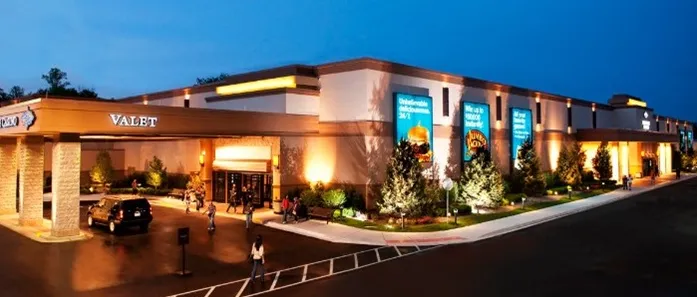Gun Lake is a Native American casino in Wayland, Michigan. It is owned and operated by a Native American tribe known as the Gun Lake Tribe. The land the casino operates on isn’t called ‘reservation land’ in the old treaty-era sense of the word. It is built on sovereign tribal trust land. This is different from some of the other Michigan tribal casinos that operate on long-standing reservation lands.
Gun Lake Casino
Gun Lake Casino consists of 100,000 sq. ft. of gaming space. It currently has 2,200 slot machines, 56 table games, and a poker room. Gun Lake’s online casino, Play Gun Lake, was built in partnership with Parx Interactive and is a top-class online platform. In 2021, the tribe received permission from the Michigan Gaming Control Board (MGCB) to launch its retail and online sportsbook.
Sovereign trust land versus reservation land
In 2007, the Gun Lake tribe purchased land in Wayland Township for the Gun Lake Casino. The casino was established in 2011 on trust land, which was granted to the tribe in 2009. This was affirmed by Congress in 2014 in the Gun Lake Trust Land Reaffirmation Act. This barred any further legal challenges to the trust status. The formal trust designation gives the land a legal status that’s much the same as the casino being on Native American reservation land.
The Soaring Eagle Casino sits directly on reservation land, the traditional land base of the tribe. The Saginaw Chippewa Tribal Nation runs a casino on the Isabella Indian Reservation, which is a long-standing reservation. The Pokagon Band of Potawatomi operates two casinos on reservations and two on land taken into trust nearby.
Whether they are located on long-standing reservations or newer trust land, tribal casinos in Michigan are regulated under the Indian Gaming Regulatory Act. The casinos are overseen through state/tribal compacts and treated as sovereign territory.
Gun Lake Tribe land ownership
Native American tribes have gone through various land disputes, and the Gun Lake Tribe is no exception. The 300-member tribe was federally recognized in 1999, but its efforts to take land into trust were almost immediately tangled up in court proceedings. It began the process of re-establishing reservation lands in 2001, so it could pursue economic development under the federal Indian Gaming Regulatory Act. The federal process didn’t conclude until 2005.
Attempts were made to delay the casino project for nearly ten years. However, any ambiguity about Gun Lake’s legal ability to move forward eventually came to an end. Despite opposition from powerful businessmen in anti-casino groups, the casino project had the support of local communities and organizations.
As the Gun Lake tribe only acquired trust land after 1988, it could only be used for gaming if it was within former reservation boundaries or taken in the context of settlement or restoration. This was an exception under IGRA Section 20 that was the case for Gun Lake.
Gun Lake Casino expansion
Gun Lake Casino recently completed construction on a 16-story hotel that has 252 rooms and 31 suites. The recent expansion will bring total investment from the Gun Lake Tribe to $750 million. The Wawye Oasis was recently opened and consists of a 32,000 sq. ft. glass atrium with a tropical theme, two pools, and private cabanas. The property also has a full-service spa and plenty of dining options. There are six on-site restaurants, a coffee shop, and eight bars across the property.
Gun Lake Tribe buying up property around the casino
Considering native land ownership history, the Gun Lake tribe can be proud of its achievements. It started buying up land between the casino and the city of Wayland, which it plans to develop. It will put most of the land into trust, so it will be governed by the tribe and not subject to taxes.
The project could take a couple of decades to finish and will not only benefit tribal members but also the whole community. The first phase will be to turn an empty piece of ground in Wayland into a multi-use housing development. The expansion will not only strengthen the tribe’s financial future but also boost the broader regional economy.
